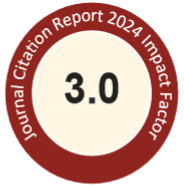Abstract
Carbendazim, a widely used fungicide, exhibits reproductive and developmental toxicity. The objective of this study was to investigate the expression of androgen receptor induced by carbendazim and the antagonistic effect of flutamide. Rats were treated with carbendazim, flutamide or a combination of both to measure androgen receptor mRNA, immune activity and protein expression. Carbendazim treatment increased androgen receptor mRNA in a dose-dependent manner, while flutamide, an androgen receptor antagonist, blocked the androgen receptor mRNA. Co-treatment with carbendazim and various flutamide doses decreased the androgen receptor mRNA in a dose-dependent manner. Conversely, co-treatment with flutamide and various carbendazim doses increased the androgen receptor mRNA in a dose-dependent manner. Immunohistochemistry and Western blot analyses showed that carbendazim increased androgen receptor activity (especially in rat testes) in a dose-dependent manner, while flutamide decreased it. Furthermore, carbendazim or flutamide treatment for 7 days increased testosterone and follicular stimulating hormone concentrations in the serum of male rats in a dose-dependent manner, which might involve the disruption of the androgen receptor. Although we need to examine the exact mechanism of androgen receptor involved in the reproductive toxicity and endocrine-disrupting activity induced by carbendazim and its parent, benomyl, we should first discuss how to take advantage of flutamide antagonism on carbendazim-induced reproductive and endocrine-disrupting activity possibly in human. In summary, carbendazim induced androgen receptor expression in mRNA and protein levels, while flutamide antagonized this effect. This is the first report on the antagonistic effect of flutamide on the carbendazim-androgenic effect on mRNA and protein levels. The results would help to clarify the mechanism of carbendazim- and chemical-induced developmental toxicity and endocrine-disrupting activity.
Recommended Citation
Hsu, Y.-H.; Chang, C.-W.; Chen, M.-C.; Yuan, C.-Y.; Chen, J.-H.; Ma, J.-T.; Ueng, T.-H.; and Lu, S.-Y.
(2011)
"Carbendazim-induced androgen receptor expression antagonized by flutamide in male rats,"
Journal of Food and Drug Analysis: Vol. 19
:
Iss.
4
, Article 10.
Available at: https://doi.org/10.38212/2224-6614.2198

